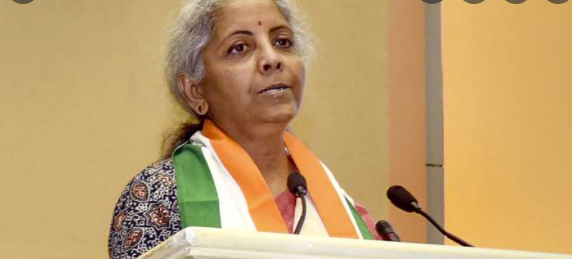Virendra Pandit
New Delhi: The International Monetary Fund (IMF) has commended India’s “swift and substantial” response to the Covid-19 pandemic and noted that there is the possibility of “a faster than expected recovery”.
“Directors commended the Indian authorities’ response to the pandemic which includes scaled-up support to vulnerable groups, monetary policy easing and liquidity provision, accommodative financial sector and regulatory policies, and continued structural reforms,” the Fund said on Friday reporting on its executive board’s consultations held with New Delhi to assess the state of its economy and finances, according to media reports.
“Despite the pandemic, the authorities have continued to introduce structural reforms, including labour reforms and a privatisation plan,” it added.
The IMF report, however, warned of the risks from the Covid-19 pandemic lurking ahead, especially because of its deleterious effect on people’s development.
“The economic outlook remains clouded because of pandemic-related uncertainties contributing to both downside and upside risks. A persistent negative impact of Covid-19 on investment, human capital, and other growth drivers could prolong the recovery and impact medium-term growth.
It also added a note of optimism: ” The recovery could also be faster than expected. Faster vaccination and better therapeutics could help contain the spread and limit the impact of the pandemic. In addition, successful implementation of the announced wide-ranging structural reforms could increase India’s growth potential.”
Emphasizing the importance of vaccinations, it said the directors welcomed the recent increase in vaccinations.
The IMF noted: “India was among the fastest-growing economies in the world in the decade before the pandemic, lifting millions out of poverty. While the economy was moderating prior to the Covid-19 shock, the pandemic implied unprecedented challenges.”
Two Covid-19 waves caused a health and economic crisis. However, the economy is gradually recovering. Following the first wave, the GDP contracted an unprecedented 7.3 per cent in FY21. The second wave resulted in another sharp fall in activity, albeit smaller and shorter, and recent high-frequency indicators suggest an ongoing recovery.
“Growth is projected at 9.5 per cent in FY22 and 8.5 per cent in FY23,” it said.
While the inflation pressures have been higher, it, in fact, eased to 5.6 per cent in July, “returning to within the RBI’s (Reserve Bank of India) inflation target of 4.2 per cent, driven by softer food prices and base effects.”
The IMF said that the fiscal deficit has increased to 8.5 per cent for the central government and 12.8 per cent for the state governments because of “the contraction in economic activity, lower revenue, and pandemic-related support measures”.
Large corporates have benefited from the “easier conditions in capital markets” even though “despite policy support, bank credit growth has remained subdued”.
The foreign exchange reserves have increased because of net inflows and improvement in the current account, it said, but expected a “return to a deficit of about 1 per cent of the GDP in FY22 due to a gradual recovery in domestic demand and higher oil prices”.
Meanwhile, Finance Minister Nirmala Sitharaman said it was “too early to conclude on the lessons” that India learnt from the Covid-19 crisis.
Interacting with a group of Indian journalists after concluding her meetings at the IMF and the World Bank, she said much before the second Covid-19 wave struck, her government had extended a stimulus and was waiting for the economy to revive.
In every exercise done during that phase and after the second wave, the government did not have any “precedent to depend upon”. “It is a bit too early for me to conclude on lessons (learnt from the Covid-19 crisis),” she said.
This crisis has touched every country, she said.
“India’s priorities are definitely based on the fact that I suppose most of us will agree on, that post the pandemic, it’s not really going to be the same world, whether it’s the manufacturing universe or whether labour,” she said.
The issues are going to be fairly different from what they were earlier, she said, adding, a lot of resets are taking place currently across the globe.
“It is not just in one sector, it is across the sectors. There is definitely a lot of thinking in global institutions. It is also looking at how there can be greater convergence among nations so that resources are better utilised,” she said.
“And where there are issues of getting prepared for a future pandemic or any such emergency where countries will have to respond to help one another. There will be a better way of doing it than the way we did this time,” Sitharaman added.

